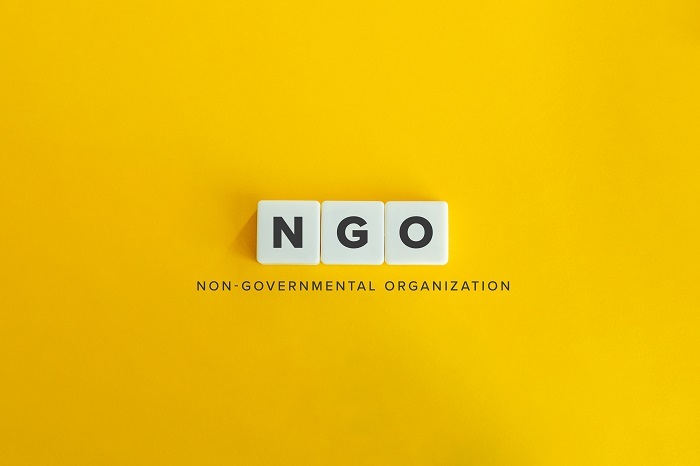
 Data Structure
Data Structure Networking
Networking RDBMS
RDBMS Operating System
Operating System Java
Java MS Excel
MS Excel iOS
iOS HTML
HTML CSS
CSS Android
Android Python
Python C Programming
C Programming C++
C++ C#
C# MongoDB
MongoDB MySQL
MySQL Javascript
Javascript PHP
PHP
- Selected Reading
- UPSC IAS Exams Notes
- Developer's Best Practices
- Questions and Answers
- Effective Resume Writing
- HR Interview Questions
- Computer Glossary
- Who is Who
Project Management Office in NGOs
The Project Management Office (PMO), a division or group inside a non-governmental organization (NGO), maybe in charge of overseeing and coordinating all of the projects and activities that the NGO manages. The PMO may be responsible for a variety of duties according to the demands of the NGO, but some common ones are as follows ?

Creating Project Plans and Schedules ? The PMO is in charge of drafting thorough project plans that describe the scope, objectives, budget, and resources required for each project. They also set deadlines for every project and keep track of development to guarantee that deadlines are met.
Resource Management ? The PMO makes certain that project teams have the personnel, tools, and financing they need to finish their duties.
Giving Direction and Support ? The PMO offers project managers and teams direction and support to assist them in navigating the project management process and resolving any issues that may crop up.
Project Status ? The PMO is in charge of informing stakeholders, such as donors, people of the community, and other NGOs, on the status of the project.
Ensuring Compliance ? The PMO makes sure that initiatives follow the policies, practices, and standards of the NGO.
Managing Project Ris ? The PMO is in charge of locating, evaluating, and controlling risks related to the project in order to reduce their detrimental effects.
Overall, the PMO is essential to ensure that projects are effectively finished and support the organization's vision and objectives.
Characteristics of Project Management Office in NGOs
Depending on the particular organization and the PMO's objectives, a non-governmental organization (NGO) PMO's features might change. However, the following are some typical traits of a PMO in an NGO ?
Centralized Project Management ? A PMO acts as the main hub for coordination and management of all projects within an NGO.
Standardized Processes ? A PMO will probably have a set of standard processes and procedures in place for project management, which helps to maintain consistency and quality across all projects.
Project Management ? A PMO is in charge of keeping track of and reporting on the status of projects, recognizing and resolving any problems that may develop, and guaranteeing that projects are finished on time and within budget.
Allocating Resources ? A PMO is in charge of giving projects the employees, tools, and money they need to succeed.
Project Governance ? The establishment and enforcement of project management standards, rules, and processes fall within the purview of the PMO.
Risk Management ? A PMO most likely has a mechanism in place for detecting, evaluating, and managing risks related to projects.
Better Reporting and Project Visibility ? A PMO will regularly report on the progress of projects, identifying any problems and making suggestions for improvement.
Continual Improvement ? A PMO may take part in continuous improvement efforts to raise the efficacy and efficiency of the NGO's project management procedures.
Support for Strategic Planning ? A project management office (PMO) may assist the non-profit organization in integrating project management with its long-term goals and objectives.
How Project Management Works in NGOs?
Project management in NGOs is often carried out by a single project manager or a group of managers. They are in charge of organizing, carrying out, and keeping track of the advancement of a particular project or group of initiatives. This comprises ?
Making project plans, goals, and objectives.
Locating and coordinating resources, such as people and goods.
Setting up and controlling project budgets.
setting up and monitoring project schedules.
Risk assessment and management.
Keeping stakeholders informed of project progress and communicating with them.
Ensuring project completion on schedule and within budget.
Constantly assessing and enhancing project procedures
Since NGOs sometimes operate in difficult and isolated settings, project management in NGOs could also require creating and putting into practice plans for overcoming logistical and cultural challenges to project execution.
Difference Between Project Management in NGOs and Project Management in Private Organizations
There may be some parallels between project management in NGOs and private enterprises, but there are also significant distinctions. Both kinds of businesses employ project management approaches to organize, plan, and carry out projects in order to accomplish particular objectives. However, NGOs and for-profit businesses often have quite distinct purposes and objectives.
NGOs are frequently striving to address issues like poverty, education, or conservation. They are generally centered on social or environmental concerns. Because of this, many of their projects have a significant humanitarian or social effect component and may be tailored to a particular neighborhood or group.
On the other hand, private organizations are often centered on generating a profit. Their initiatives frequently center on creating new goods or services, entering new markets, or boosting effectiveness and productivity.
NGOs frequently rely on contributions, grants, and fundraising efforts for funding, whereas commercial organizations depend on their own internal revenue and investments. NGOs may have fewer resources and capacity for risk management and mitigation than private organizations, hence the approach to risk management may also differ.
Overall, the main difference between project management in NGOs and private organizations is in their goals, objectives, funding, and risk management.
Conclusion
In order to accomplish the aims and objectives of the organization, project management offices (PMOs) in NGOs play a critical role in ensuring that projects are carried out successfully and efficiently. In addition to supporting and advising project teams, these PMOs are in charge of organizing, planning, and monitoring initiatives. Due to NGOs' special characteristics, PMOs inside these organizations may encounter particular difficulties, such as resource constraints and an emphasis on social impact. However, a PMO in an NGO may assist the group in achieving its goals and having a beneficial influence on the communities if it works with the appropriate strategy and resources.

